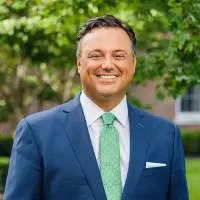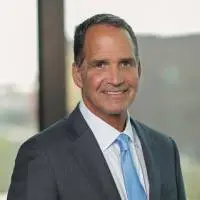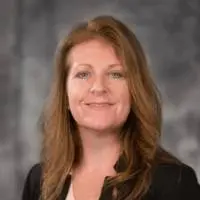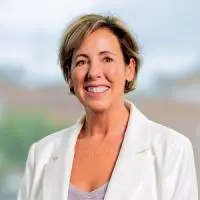About ProMedica Russell J. Ebeid Children’s Hospital — Pediatric Psychiatry
ProMedica Russell J. Ebeid Children’s Hospital — Pediatric Psychiatry treats children and adolescents with acute psychiatric needs. The children’s facility is near the University of Toledo Medical Center and local attractions such as Ottawa Park, Toledo Botanical Garden, and Toledo Museum of Art.
Pediatric Crisis Stabilization
The children’s psychiatric facility is on the hospital grounds of the ProMedica Russell J. Ebeid Children’s Hospital. They offer pediatric crisis stabilization as inpatient or outpatient care. Clinicians and nurses emphasize pediatric medication management, especially when used with assessments and stabilization. If clients need help for more intensive issues, such as substance use disorder, they may be provided with referrals to nearby treatment centers that can help.
Pediatric care includes diagnosing and treating various mental health struggles like depression or emotional issues. Families have stated that they felt well-treated and cared for with their children. I’ve read the reviews that state clients and families highlight a sense of safety and support during pediatric stays.
Toledo Hospital Prioritizes Children’s Safety
I’ve read that this facility prioritizes children’s safety. They provide safe spaces, including an outdoor area for recreational opportunities. This staff focuses on these therapeutic activities for clients and families.
The care team here includes nurses, psychiatrists, and psychologists, all trained in adolescent care. This level of care helps prioritize children and their safety. The hospital is part of ProMedia’s integrated health system, so it has many trained staff who can help children in more than just psychiatric needs.
Affordable Pediatric Psychiatry
Parents and guardians can feel at ease, knowing there’s affordable pediatric psychiatry at this local hospital. The facility accepts Medicaid, Medicare, and private insurance plans, as well as hospital financial assistance.
Facility Overview
Rehab Score
Other Forms of Payment
Medicaid is a state based program that helps lower-income individuals and families pay for healthcare. Medicaid covers addiction treatment so those enrolled can use their coverage to pay for rehab. When a program accepts Medicaid the client often pays very little or nothing out of their own pocket.
Private insurance refers to any kind of healthcare coverage that isn't from the state or federal government. This includes individual and family plans offered by an employer or purchased from the Insurance Marketplace. Every plan will have different requirements and out of pocket costs so be sure to get the full details before you start treatment.
Self-pay involves paying for treatment out of your own pocket. You can use savings or credit, get a personal loan, or receive help from family and friends to fund your treatment. If you don't have insurance or your insurance plan doesn't cover a specific program, self-pay can help ensure you still get the care you need.
Financial aid can take many forms. Centers may have grants or scholarships available to clients who meet eligibility requirements. Programs that receive SAMHSA grants may have financial aid available for those who need treatment as well. Grants and scholarships can help you pai for treatment without having to repay.
Military members, veterans, and eligible dependents have access to specific insurance programs that help them get the care they need. TRICARE and VA insurance can help you access low cost or no cost addiction and mental health treatment. Programs that accept military insurance often have targeted treatment focused on the unique challenges military members, veterans, and their families face.
Medicare is a federal program that provides health insurance for those 65 and older. It also serves people under 65 with chronic and disabling health challenges. To use Medicare for addiction treatment you need to find a program that accepts Medicare and is in network with your plan. Out of pocket costs and preauthorization requirements vary, so always check with your provider.
Addiction Treatments
Levels of Care
 Inpatient
Inpatient
Treatments
Many of those suffering from addiction also suffer from mental or emotional illnesses like schizophrenia, bipolar disorder, depression, or anxiety disorders. Rehab and other substance abuse facilities treating those with a dual diagnosis or co-occurring disorder administer psychiatric treatment to address the person's mental health issue in addition to drug and alcohol rehabilitation.
Mental health rehabs focus on helping individuals recover from mental illnesses like bipolar disorder, clinical depression, anxiety disorders, schizophrenia, and more. Mental health professionals at these facilities are trained to understand and treat mental health issues, both in individual and group settings.
Clinical Services
Cognitive Behavioral Therapy (CBT) is a therapy modality that focuses on the relationship between one's thoughts, feelings, and behaviors. It is used to establish and allow for healthy responses to thoughts and feelings (instead of unhealthy responses, like using drugs or alcohol). CBT has been proven effective for recovering addicts of all kinds, and is used to strengthen a patient's own self-awareness and ability to self-regulate. CBT allows individuals to monitor their own emotional state, become more adept at communicating with others, and manage stress without needing to engage in substance abuse.
Experiential therapy is a form of therapy in which clients are encouraged to surface and work through subconscious issues by engaging in real-time experiences. Experiential therapy departs from traditional talk therapy by involving the body, and having clients engage in activities, movements, and physical and emotional expression. This can involve role-play or using props (which can include other people). Experiential therapy can help people process trauma, memories, and emotion quickly, deeply, and in a lasting fashion, leading to substantial and impactful healing.
Group therapy is any therapeutic work that happens in a group (not one-on-one). There are a number of different group therapy modalities, including support groups, experiential therapy, psycho-education, and more. Group therapy involves treatment as well as processing interaction between group members.
In individual therapy, a patient meets one-on-one with a trained psychologist or counselor. Therapy is a pivotal part of effective substance abuse treatment, as it often covers root causes of addiction, including challenges faced by the patient in their social, family, and work/school life.
Staff

Arturo Polizzi
CEO

Kent Bishop
Chief Medical Officer

Ondrea Williams
Chief Nursing Officer

Angela Brandt
Chief Administrative Officer

Debi Brobst
CIO
Contact Information
2142 N. Cove Blvd.
Toledo, OH 43606